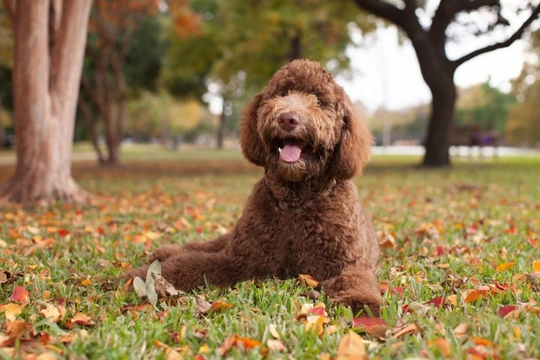
6 Healthier Breeds of Dog
There are many dog breeds with some being newer to the scene than others which makes hard for people to choose which kind of dog would best suit their lifestyle. There's lot to factor in when deciding what breed to choose and it's best to carry out as much research as possible before making that final decision which includes checking out the health issues that are known to affect them. It would be wrong to say that a dog would never develop any sort of health issue during the course of their lives, but with this said there are some breeds that seem to be less likely to suffer from hereditary disorders than others which is another thing worth investigating. Four of the healthier breeds around are described in this article.
The Australian Cattle Dog
Although the Australian Cattle Dog is known to suffer from a few hereditary and congenital health disorders, they are thought of as being a robust working dog. They boast quite long life spans too which can be anything from 12 to 14 years when well cared for and fed an appropriate diet to suit their ages. The only four conditions that seem to affect the breed the most are as follows:
- Progressive retinal atrophy (PRA)
- Hip dysplasia
- Elbow dysplasia
- Deafness
Australian Cattle Dogs can be DNA tested for all the conditions above and good breeding is essential to prevent offspring from being born with any of them or at the very least it reduces the risks of damaging genes being passed on to puppies.
The Havanese
The Havanese is another robust and healthy little dog and one that doesn't seem to be afflicted with many of the congenital disorders that affect other small breeds. They also enjoy long life spans which can be anything from 14 to 16 years when properly looked after. The only real health concerns that seem to affect the Havanese is to do with their eyes. As such, the Kennel Club recommends dogs be tested with the good news being there is a voluntary scheme available**.**
The Siberian Husky
The Siberian Husky is an attractive, handsome dog and one that's always been highly prized as a sled and racing dog. They are also known to be a robust breed which has stood them in good stead not only as working dogs, but as companions and family pets too. They are not the best choice for everyone, but for people who like to lead busy outdoor lives and who spend a lot of time at home, the Siberian Husky makes for a great companion. They boast long life spans too which can be anything from 12 to 14 years when correctly cared for. The only two conditions that owners need to be aware of are as follows:
- Progressive retinal atrophy (PRA)
- Hip Dysplasia
The good news is that dogs can be tested for both health issues and any dog known to suffer from either of them should not be used in a breeding programme.
The Chihuahua
Chihuahuas might be tiny in stature, but they are remarkably healthy little dogs. They can enjoy long life spans when correctly cared for which can see them living to the ripe old age of 18+ years. With this said, there are a few health issues the breed is known to suffer from which includes the following:
- Patella luxation
- Hydrocephalus
- Hypoglycemia
- Eye issues and this includes injuries to their eyes
It's worth noting that the breed is the only one where puppies are born with skulls that are not fully formed and that they only fully develop as dogs get older which is why a lot of care must be taken around Chihuahua puppies.
The Labradoodle
Although relatively new to the scene, the Labradoodle is known to have a long life span which can be anything from 12 to 15 years. They are also known to be one of the healthier hybrid dogs around although there is always a chance of a puppy inheriting a congenital disorder a parent breed is prone to suffer from. With this said, responsible breeding goes a long way when it comes to producing healthy offspring.
The Border Collie
Border Collies are another breed that enjoys long life spans when properly cared for and although they can develop certain health issues, they are also known to be one of the healthier breeds around. They ae best suited to families who lead active outdoor lives because Border Collies like to be kept busy. The health concerns that seem to affect the breed the most are as follows:
- Hip dysplasia
- Collie eye anomaly
- Epilepsy
The good news is that dogs can be DNA tested for hip dysplasia and CEA.



